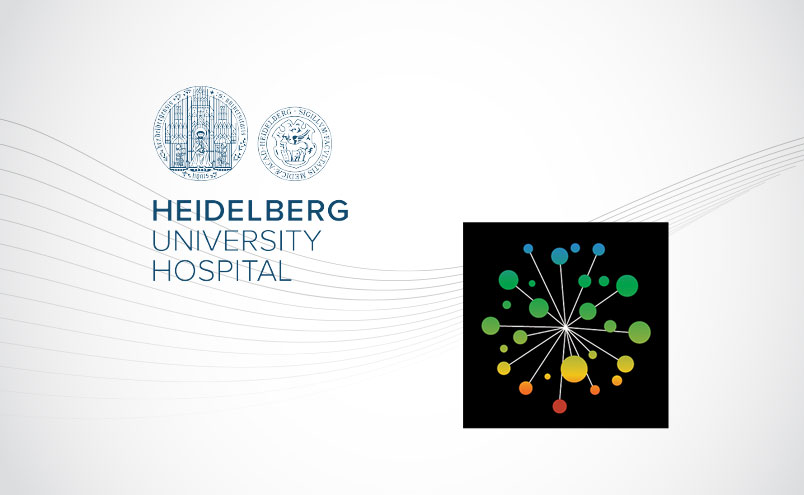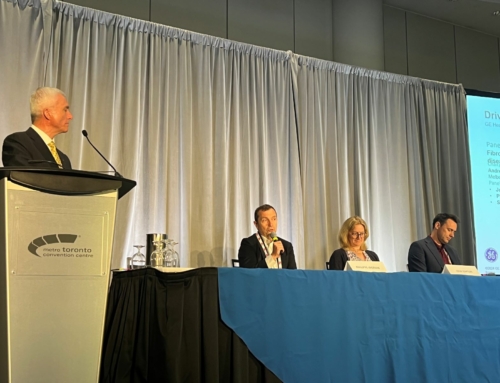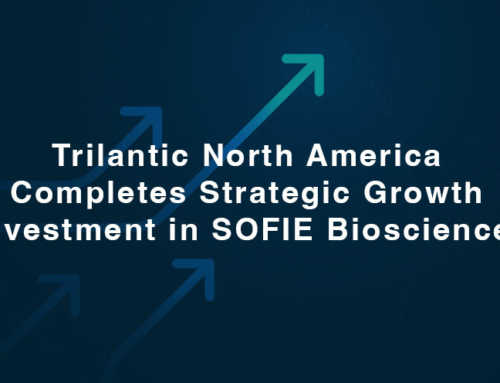SOFIE and University Clinic Heidelberg Sign License Agreement for Theranostics That Target Cancer Associated Fibroblasts
Los Angeles, USA and Heidelberg, Germany, June 21, 2019 – SOFIE Inc. (SOFIE), a Theranostics company, is pleased to announce an exclusive global license with University Clinic Heidelberg (UKHD) for a class of molecular targeted diagnostics and radiotherapeutics (“theranostics”) that are designed to identify and break down cancer associated fibroblasts in tumor stroma and irradiate nearby cancer cells. These quinoline-based compounds that act as fibroblast activation-protein inhibitors (“FAPI”) are also the subject of the Journal of Nuclear Medicine’s June cover story.
Based on the recent successes of combination radiotherapeutic/diagnostics in neuroendocrine tumors and prostate cancer, the search has expanded for other protein targets present on, or associated with, cancer cells. Generally, the tumor stroma is increasingly recognized as a major therapeutic target in cancer. The tumor stroma makes up greater than 90% of the tumor mass, protects tumors cells from an immune response, and provides a physical barrier that hinders drug uptake into tumor cells.
Cancer Associated Fibroblasts (CAFs) are the subpopulation of tumor stromal cells that are responsible for this immune evasion and chemotherapy resistance, and are present in more than 90% of epithelial carcinomas, including pancreatic, colon, breast cancer, and other non-epithelial carcinomas. Fibroblast activating protein (FAP) is a protein over-expressed in CAFs and represents a key, cancer-specific therapeutic target as they are absent in healthy tissue.
The license includes small molecule inhibitors of FAP that can be labeled alternatively with different radioisotopes; those for diagnostic imaging to identify patients whose tumors contain CAFs with high expression of FAP and those for radiotherapeutic treatment of these patients. More than 200 patients were imaged at the University Clinic Heidelberg, as well as five other academic centers in Germany investigating patients with a wide range of cancers. Moreover, a small number of patients received compassionate care therapy on an individual patient basis at Heidelberg University Hospital and were analyzed in an approved retrospective observational study.
“FAPI tracers may be beneficial for radiation therapy planning, suspicion of false negative findings, staging, identification of primary tumors in patients with cancer of unknown primary or even therapy in the last-line situation, especially in combination with immunotherapy. In addition FAPI imaging may also be used to assess and manage cardiac diseases or fibrotic diseases of the lung, liver and kidneys. The possibility of early imaging—for example, after only 10 minutes instead of an hour—could also play a part in simplifying clinical workflow”, said one of the FAPI inventors and UKHD Professor, Dr. Uwe Haberkorn. “Cancer associated fibroblasts have been described as immunosuppressive and as conferring resistance to chemotherapy, which makes them attractive targets for combination therapies. Because the 68Ga-FAPI tracers contain the universal DOTA-chelator, it is possible to label them with therapeutic radionuclides whose half-life fits to the tumor retention time of the carrier molecule. Since the tracer has been observed to accumulate in several important tumor entities, there may be a huge field of therapeutic application to be evaluated in the future.”
Philipp Czernin, SOFIE’s Chief Revenue Officer, led the negotiations with UKHD. “With our CTO Melissa Moore, I worked to not only license the FAPI IP, but more importantly, forge a partnership with the scientists and technology transfer practice at Heidelberg University. I could not be more excited about developing FAPI’s theranostic potential across a variety of solid tumor indications to positively impact patient diagnosis and care”.
About SOFIE
The early vision for molecular imaging was to revolutionize clinical diagnostics and therapeutics to better understand and treat the biology of disease. Today, SOFIE brings that vision to life by increasing the adoption and application diversity of theranostics by removing the cost and complexity traditionally associated with the technology. With a full line of imaging and radiochemistry systems and a premier radiopharmacy network and contract manufacturing organization to supply novel agents for diagnosis and therapy, SOFIE is dedicated to improving patient health. For more information, please visit sofie.com or contact info@sofie.com.
About University Clinic Heidelberg
Heidelberg University Hospital is one of the largest and most prestigious medical centers in Germany. The Medical Faculty of Heidelberg University belongs to the internationally most renowned biomedical research institutions in Europe. Both institutions have the common goal of developing new therapies and implementing them rapidly for patients. With about 13,000 employees, training and qualification is an important issue. Every year, around 65,000 patients are treated on an inpatient basis, 56,000 cases on a day patient basis and more than 1,000,000 cases on an outpatient basis in more than 50 clinics and departments with almost 2,000 beds. Jointly with the German Cancer Research Center (DKFZ) and German Cancer Aid, Heidelberg University Hospital has established the National Center for Tumor Diseases (NCT) Heidelberg, where promising approaches from cancer research are translated into the clinic. Currently, about 3,700 future physicians are studying in Heidelberg; the reform Heidelberg Curriculum Medicinale (HeiCuMed) is one of the top medical training programs in Germany. For more information, please visit www.klinikum.uni-heidelberg.de.






